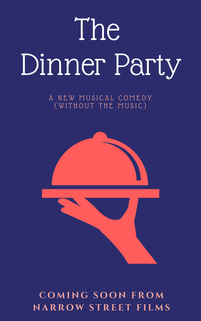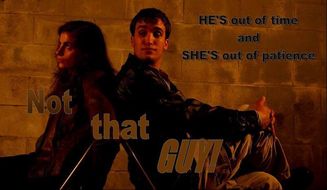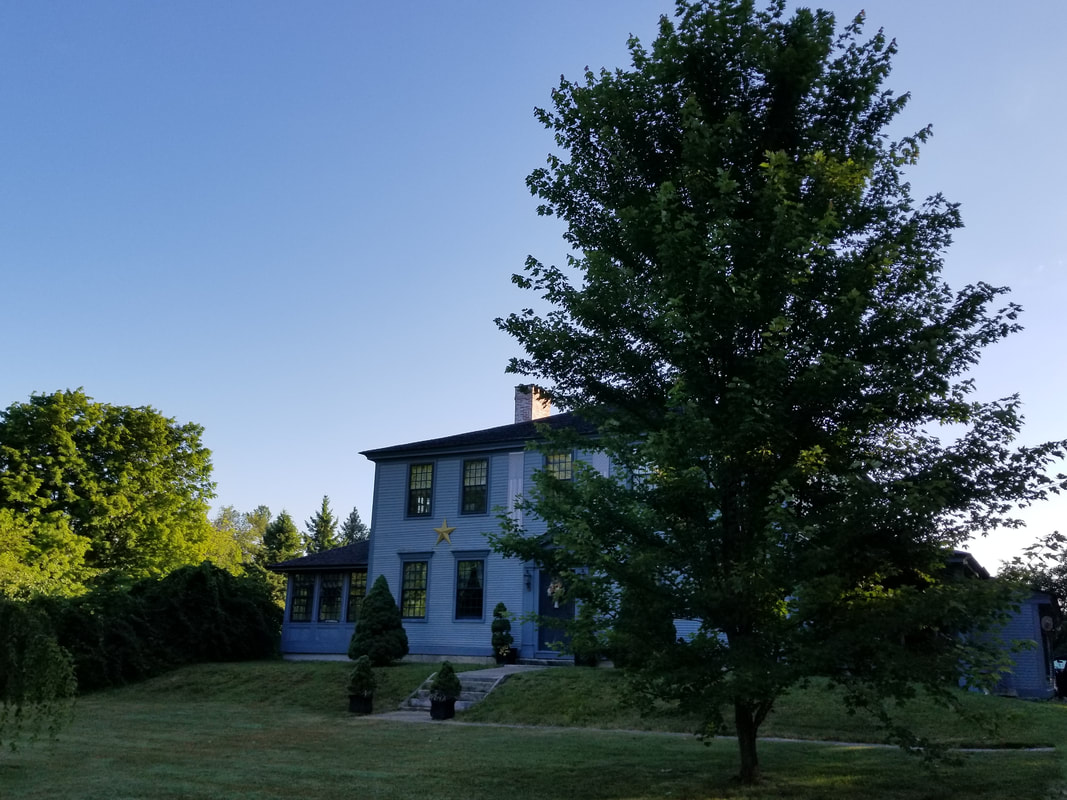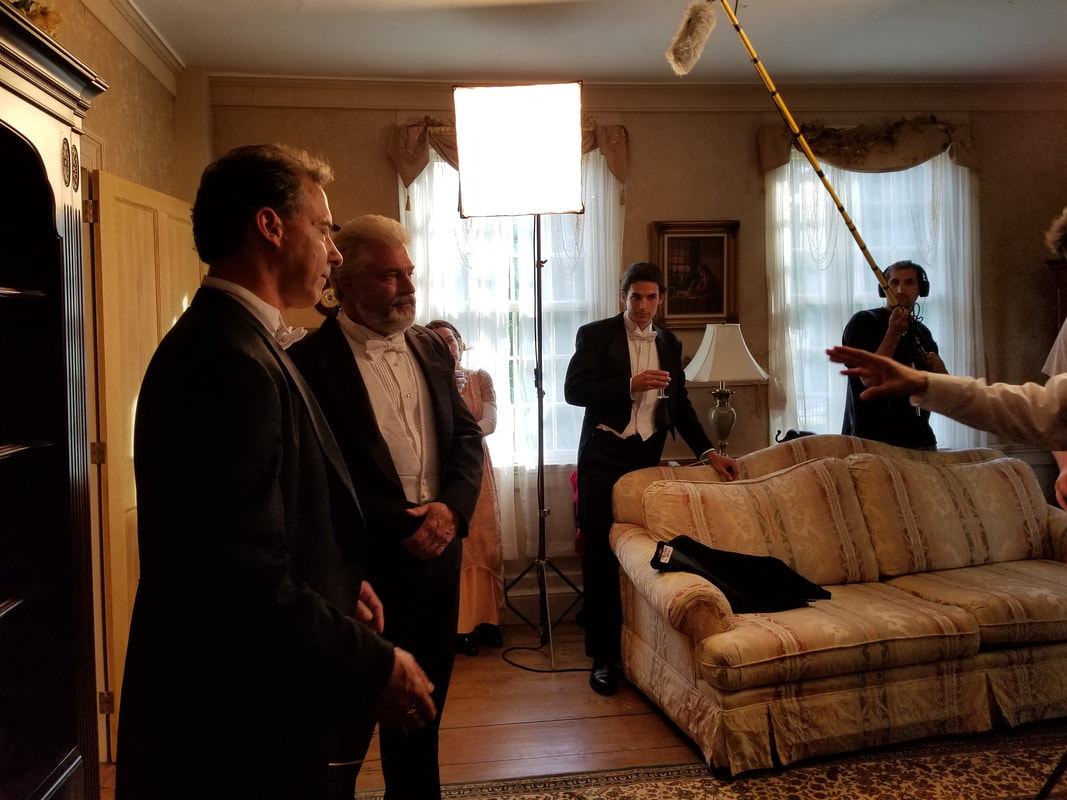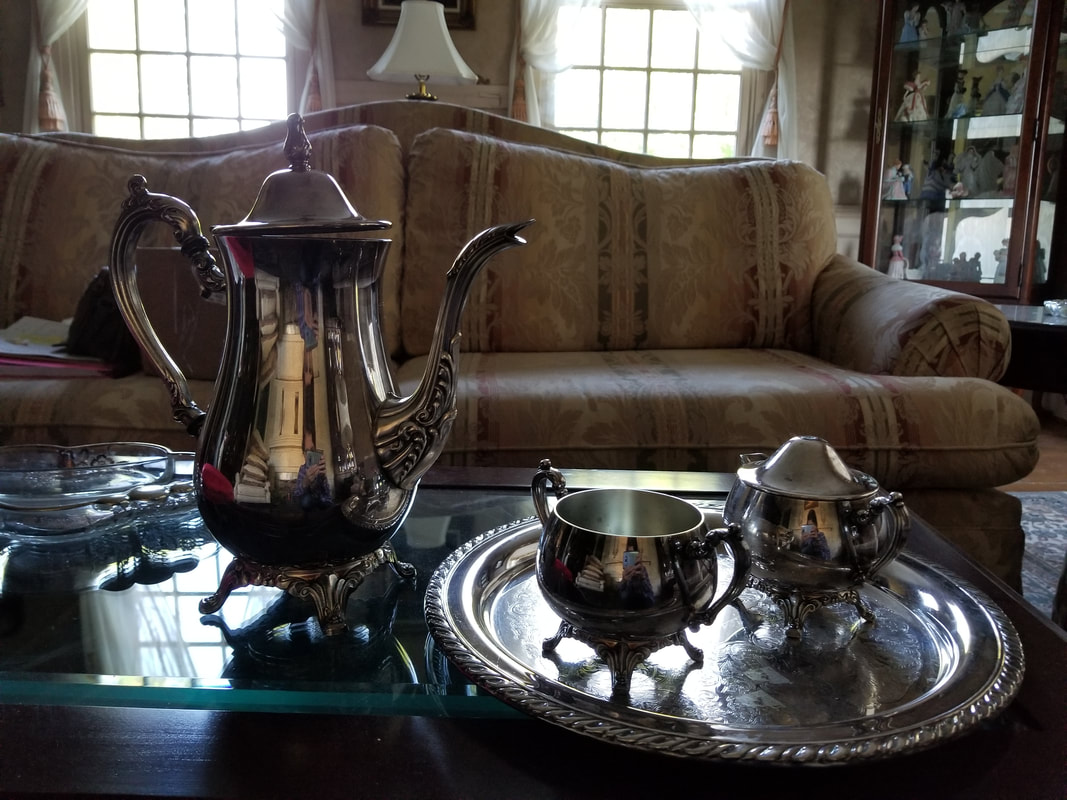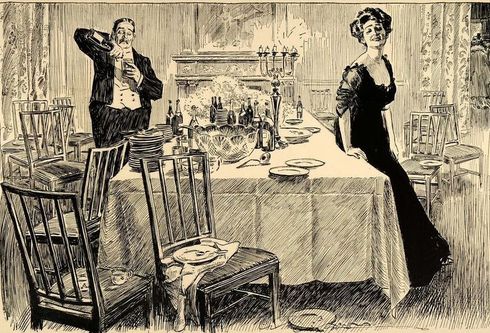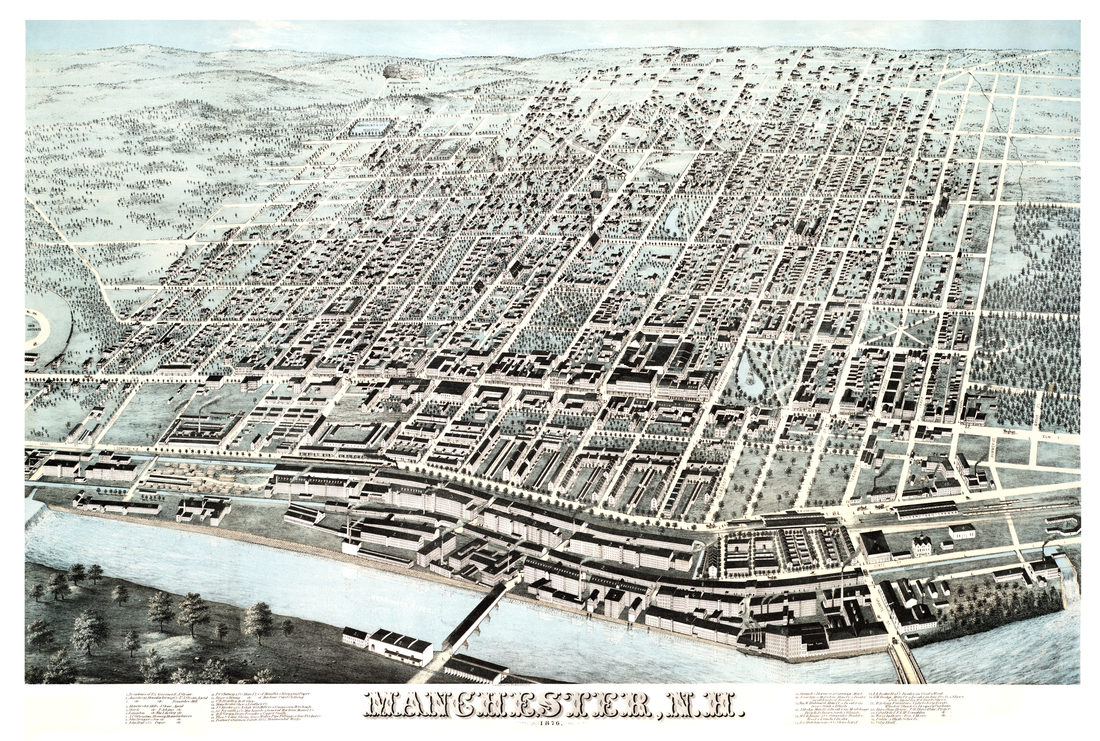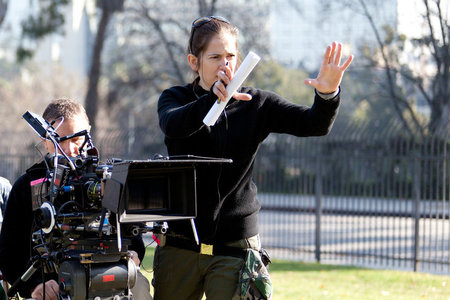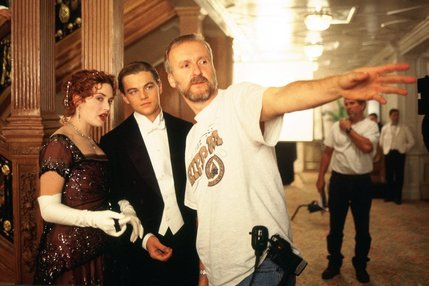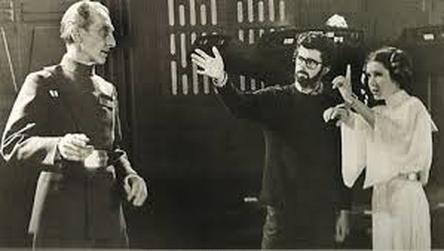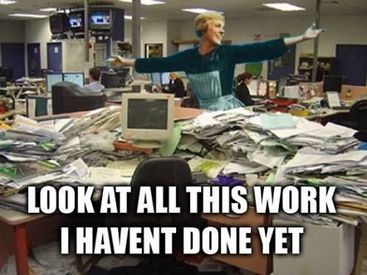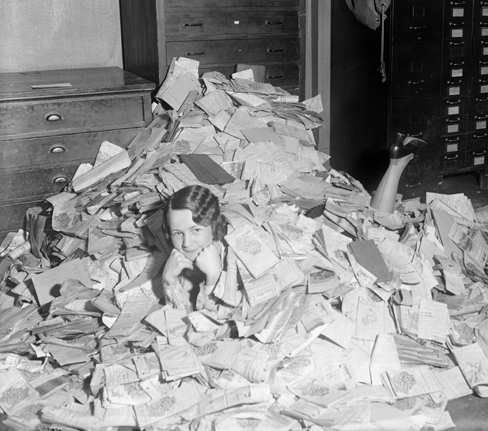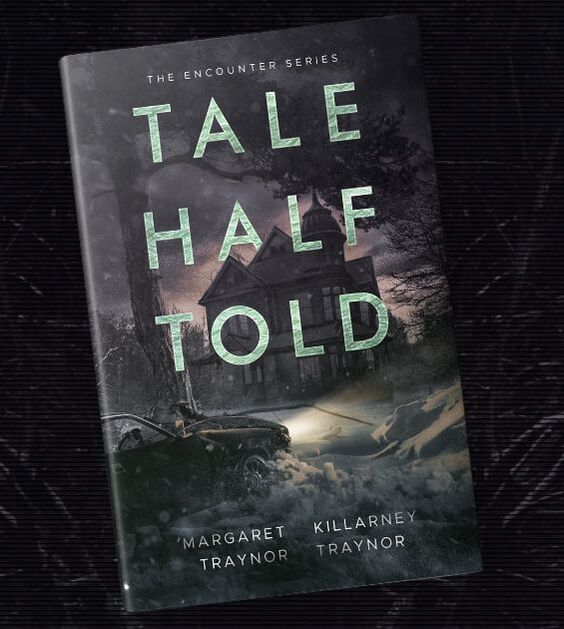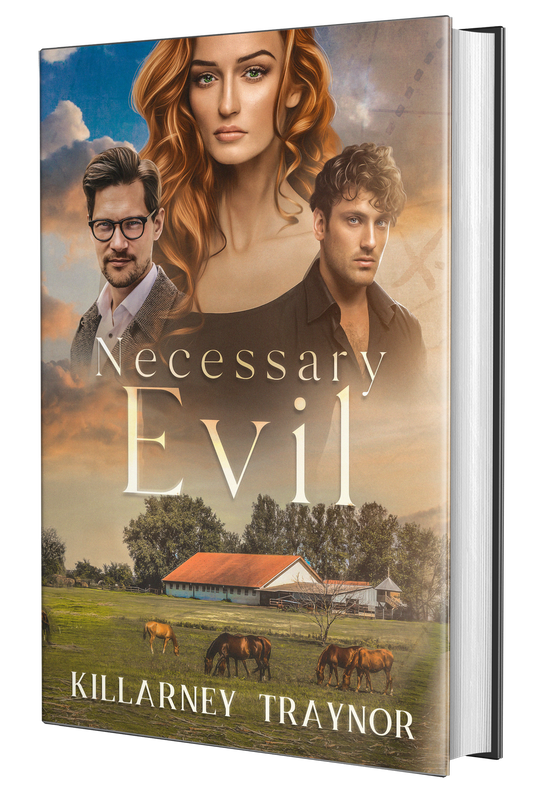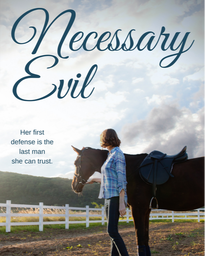 Necessary Evil is free on Amazon Kindle for a limited time only, so be sure to check that out! Here's the teaser line: "Maddie Warwick is about to lose everything and the only man that can help her is the last man she can trust. But losing her heart was never part of the bargain..."
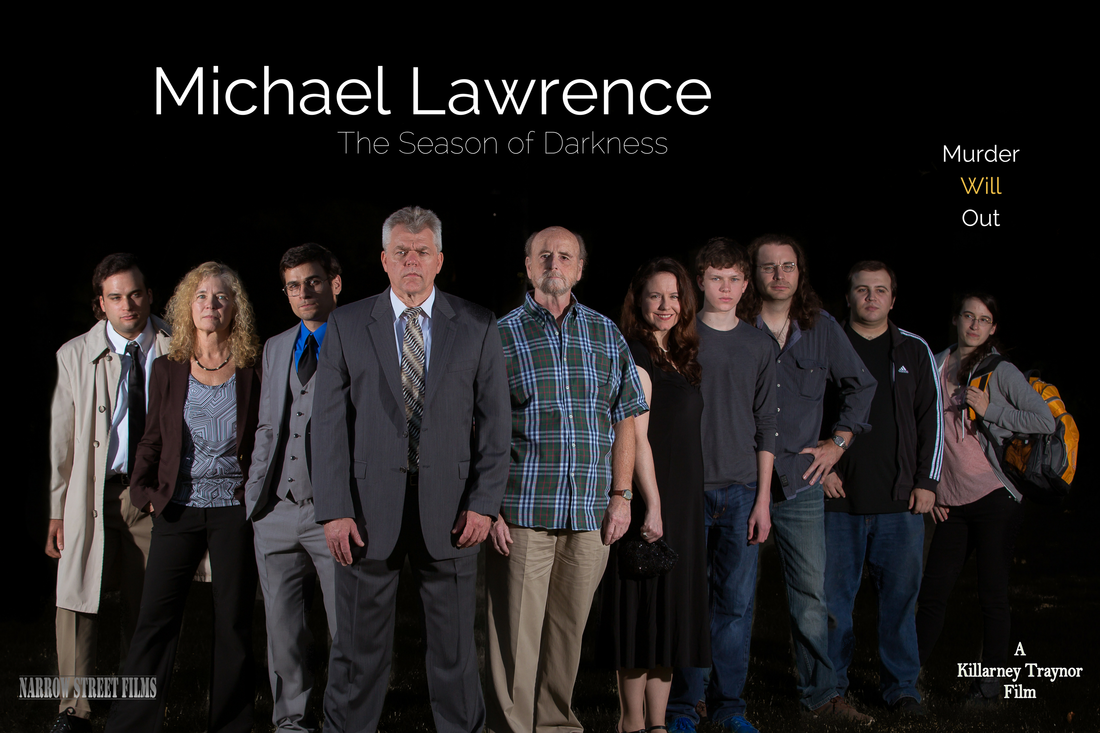 Michael Lawrence: the Season of Darkness will be showing in Exeter NH on September 22nd: stayed tuned for more details. I am so, so proud of this particular movie - the cast, crew, and energy are just so spot on. Be sure to check it out and check out the book page on this site and on IMDb while you're at it!
0 Comments
Last weekend, we began filming "The Dinner Party" and what a crazy rush it's been! After all the prep-work and a few last minute challenges (including having to find a new costumer five days before the first shoot!), we've got some footage in the can and a few awesome pictures like the ones below. Check them out and stay tuned - the best is yet to come!
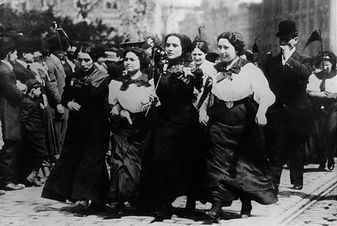 New York Mill Workers, circa 1910 New York Mill Workers, circa 1910 You'll never know what you don't know about a period until you're writing a book or making a movie about that era. Seriously. It's odd what you find yourself typing into the Google search bar. For instance, when I was writing Necessary Evil, I needed to know everything worth knowing about engagement rings during the Civil War. Were engagement rings used? If they were, did they have stones? Were they gold? Could we tell what they were just by looking at them? 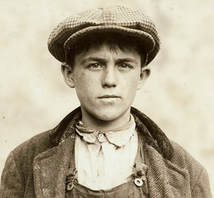 A potato eater A potato eater Similarly, with The Dinner Party, I've found myself researching things that I never would have dreamed of looking into. Here are a few instances: - If you were a jerk, would you call an Irishman a 'potato-eater' (Answer: yes.) - Do the Felsons own a mill or a factory? (Answer: both. It is a factory, but its powered by water, which means it would have commonly been referred to as a mill) - Would a husband lead a wife into the dining room for an elegant dinner party? (Answer: no, indeed! The very gauche idea!) - How close would an owner's/overseer's house be to the mill/factory he ran? (Answer: it varied, probably dictated by wealth, wife, and how smelly the factory/mill was.) - What would young radicals be ranting to their elders about? (Answer: pretty much the same thing they are ranting about now, only with fewer selfies.) 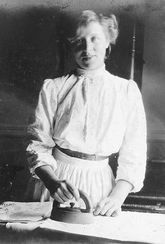 A career girl, circa 1906 A career girl, circa 1906 Fortunately, I really love this kind of thing. Research like this makes the past come alive in ways a text-book can't quite touch. Movie-making, too, allows us to remember that our ancestors were, at the end of the day, people just like you and me, trying to make a go of things and learning, working, laughing, fighting, and loving along the way. Now, if you'll excuse me, I have to find out whether lemons would have been available in New Hampshire in May of 1906... I don't know about you, but when I think about film making and directing, the first thing that comes to mind is an image like this: You know, being all cool. wearing black shirts and jeans, making big decisions, and, best of all,dramatically pointing beyond a glamorous person, like so: And, in truth, there is a lot of that fun stuff going on during the actual film shots. But what I always, always, always, ALWAYS forget it is how much work it takes to actually get to the set. You have to find (or write) the script, convince other people that it's awesome, recruit your cast, cast your crew, scout your locations, find/buy/build your props, costume your characters, storyboard, schedule, rehearse, re-story board when your location changes or your rehearsal changes the pacing of the scenes, arrange for make-up artists, hair-stylists, stuntmen, camera people, sound equipment, music accompaniment, artists for the credits, etc, etc. When you're doing an historical piece, like The Dinner Party, every task takes on second and third dimensions: do the locations look like the period or can they be made to? Will that couch work for 1906 or do I need to figure out how to get it out of the living room we'll be filming in? Is the prop period appropriate? Will the costume rental place allow me to plaster one of my actresses with eggs? Can you call an Irishman a potato-eater or is that not a thing? What sort of dress would a wife wear when instructing her maid in the middle of the day? What sort of jewelry would she wear? Would a New England family start a dinner gathering with an aperitif? Should the make-up artist use eye-liner on the ladies? What sort of hairstyle would the maid wear? And where on earth can I lay my hands on a western saddle? In short, in order to get to this: ...you have to get through this, first: Which isn't to say that prep-work isn't fun, because it can be a blast! (Especially rehearsals - you never know what's going to come up in those.) And it's not like I'm doing this alone, thank goodness (and thank Terry Traynor, also producing and running crew), because there are many many hands at work in all of this. Prep-work is where the magic really begins. As fun and cool as it is to be on set, making dramatic motions with your hands, it's what you did leading up to the shoot that really matters in whether your films is a fun, artistically fulfilling project or not.
Now, if you'll excuse me, there's a Film-Project To-Do list as long as my house waiting for my attention... 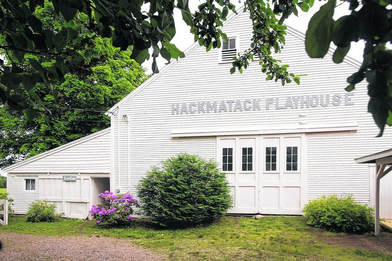 One of the best parts about film making is, as I may have mentioned before, all the cool people that you get to work with. Another fun part is all the place you get to go in search of locations, props, costumes, vehicles, etc. When you're working on a no-budget film, you can't afford to have things made for you, so you have to improvise, be creative, beg, and borrow. Yesterday, I got to go to Hackmatack Playhouse in Berwick, ME, to look at costumes for our upcoming movie The Dinner Party. Located on a beautiful farm, with rolling fields framed by pine trees, it looks like a set out of Anne of Green Gables - except for the bison, milling about in the far field. Yes, Hackmatack is also a bison farm - how awesome is that? The stage is located in an enormous barn and there's a refreshment stand that boasts of selling coffee along with the usual theater goodies. The costumes were stored in another wooden equipment shed. Autumn Allen, our leading lady for The Dinner Party, helped me sort through decades worth of dresses, suits, hoop-skirts, and outfits from every era, which Hackmatack generously allowed other theaters and filmmakers to use. The Edwardian period is pretty tricky to outfit (it's a very distinctive period), so every article of clothing helps. What didn't help was seeing the gorgeous Medieval outfits that they had on the rack: they just revived my long-dormant desire to write a an Ivanhoe movie... something I'm pretty sure the owner of Narrow Street Films would have fit over at the mere suggestion. (An Edwardian period piece on a no-budget film is one thing... but a movie involving castle sieges and jousting tournaments and knights in full armor? Yeah...) Back to the project at hand: thanks to Hackmatack's generosity, we have a good start towards costuming our cast and I've discovered a bison farm and a new place to go see some shows. While some people may see no-budget films as daunting and more work than they're worth, the challenge is its own reward - and the by-products of discovery, creativity, and new acquaintances are the diamonds in the rough. Check out the Hackmatack Playhouse website for this Summer's line-up!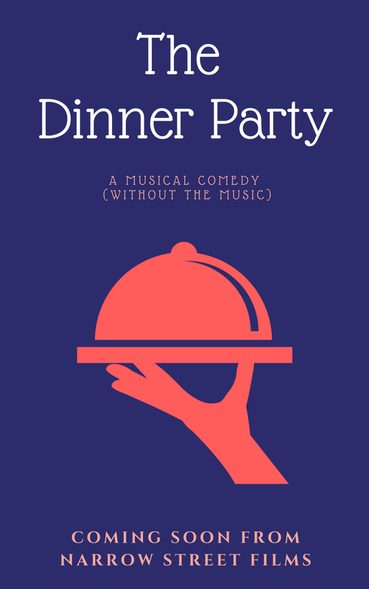 The script is written. The cast is assembled. The schedule is set. The crew is standing by. Tomorrow, we begin rehearsals for Narrow Street Films new movie, The Dinner Party: a musical comedy without the music set in the first decade of the 1900s. It's sure to be a blast. I'm taking the director's chair on this one, which is always a fun challenge. Right now, the producer and I are knee-deep in location scouting, costume conjuring, and the endless search for coffee and crew (any hairstylists wanna come and join us? Pretty please?). This isn't the first time we've done a historical movie (see The Man Who Wasn't Tex Magru) nor is it the first time I've directed (see Michael Lawrence: the Season of Darkness, coming soon to Amazon Video), but every movie, every script, is unique and present both problems to solve and opportunities to explore. You get to really flex your creative muscles working on projects like these: from losing locations (a problem we're currently trying to solve) to last minute casting changes (Michael Lawrence had a number of these!) to technical issues like lighting and sound, film making is both overwhelming and a rush, like a triathlon, where you're doing all three parts - swimming, cycling, running - at the same time... while juggling kitchen knives. But the absolute best part about film making is the people that you get to meet and work with along the way. I've met some of the best people working in Indie films: tough, smart, hard-working, team-players who can still laugh after long days on a hot set, trying to remember lines. Want to know a person, really know a person? Make a zero-budget movie with them. It's an eye-opening experience for sure. We haven't been on set since the wrapping of Chance back in 2017. Now we return, with a new script, a new plan, and a great cast. As the director, I don't know how everything is going to get done - I just have to make sure it does. But I can guarantee one thing: the film is going to be a blast, both to make and to watch. Stick around, guys. You won't want to miss this! |
The BlogWelcome to Categories
All
|
Copyright © Killarney Traynor
All Rights Reserved.
No part of this website may be reproduced without
the Owner's express consent. [Backlinks allowed.]
All Rights Reserved.
No part of this website may be reproduced without
the Owner's express consent. [Backlinks allowed.]

